Coup
Many supposedly invincible leaders have been forced to flee their countries or go into hiding to escape imprisonment, execution, or political reprisals from succeeding governments following revolutions, military coups, or mass protests.
The latest international leader to join this list is Andry Rajoelina , the president of Madagascar , who was overthrown this week in a military coup . His fall came after several weeks of protests led by Generation Z against hardship, lack of opportunity, and electricity shortages in the Indian Ocean island nation.
Here's a look at other leaders who have suffered a similar fate.
Bashar al-Assad
In 2024, former Syrian leader Bashar al-Assad fled to Russia as rebels advanced toward the capital Damascus to seize power after years of civil war.
As opposition forces swept across the country, Assad arrived in Moscow, ending his family's 51-year rule over the country.
For years, Assad has enjoyed the support of his allies, Russia and Iran , who have backed him throughout a 13-year civil war against opposition forces.
Russian President Vladimir Putin granted him, his family, and some of his associates protection and refused to extradite him to Syria.
Sheikh Hasina
In August 2024, Bangladesh's longest-serving Prime Minister, Sheikh Hasina , was forced to resign and flee the country after waves of protests succeeded in overthrowing her government.
The UN Human Rights Office estimates that up to 1,400 people were killed when security forces cracked down on the weeks-long student-led protests.
Hasina, who remains in exile in India , first became prime minister in 1996, then returned in 2008 to win the post, which she held until her resignation.
His father, Sheikh Mujib Rahman , was the first leader of independent Bangladesh. He was assassinated in a military coup in 1975.
Gotabaya Rajapaksa
After months of protests against a devastating economic crisis, Sri Lankan President Gotabaya Rajapaksa fled the country in July 2022 for the Maldives , returning about two months later.
The South Asian island nation's economic collapse has left it without the cash it needs to pay for food and fuel imports, pushing it into default, and forcing people to queue for days for cooking gas and gasoline.
Sri Lankans blamed Rajapaksa, who belonged to a powerful political family dynasty, for the disaster.
He was forced to resign, as were his brother Mahinda Rajapaksa, who was Prime Minister, and two other brothers and a nephew who were part of his cabinet.
Viktor Yanukovych
In February 2014, following a series of deadly protests, Ukrainian President Viktor Yanukovych fled the capital Kyiv and eventually resurfaced in Russia.
The protests in Kyiv were sparked by Yanukovych's shelving of a deal with the European Union in November and turning to Russia for a $15 billion bailout loan. Yanukovych and opposition leaders reached an agreement aimed at ending Ukraine's political crisis, but he secretly fled the capital that evening.
Ukrainian lawmakers voted for his impeachment and early presidential elections, while an arrest warrant was issued for him following protests that left dozens of civilians dead.
Putin and Yanukovych would later state that Russian forces helped Yanukovych escape to Russia via Crimea.
Muammar Gaddafi
Libyan leader Muammar Gaddafi lost his four-decade power in the 2011 Libyan Civil War, part of the wider Arab Spring uprisings .
Rebel forces overthrew Gaddafi after capturing the capital Tripoli, forcing him to flee with a handful of loyalists. He hid for weeks amid a bloody siege by rebel forces in his hometown of Sirte , one of the last strongholds of loyalist resistance.
Gaddafi attempted to flee the besieged city on October 20, 2011, with a convoy of loyal fighters, but they were scattered after being hit by a NATO airstrike. Opposition forces then located Gaddafi in a large drainpipe and captured him.
After his death, his body was displayed to the public for a few days before being buried in a remote desert site.
Marc Ravalomanana
Marc Ravalomanana was Madagascar 's sixth president from 2002 to 2009, until he was overthrown in a military coup led by none other than Rajoelina, who was at the time the former mayor of Antananarivo, the capital.
Ravalomanana transferred his power to a military council and fled to South Africa . The international community considered this a coup d'état and withdrew all aid except humanitarian aid.
Ravalomanana was later convicted in absentia of conspiracy to commit murder in a case related to the violence that accompanied his overthrow. He was sentenced to life imprisonment after a trial described as "unfair" by Amnesty International.
After more than five years in exile, he returned to Madagascar and was arrested at his home. The following year, his sentence was lifted and he was released from house arrest.
Jean-Bertrand Aristide
Former Haitian President Jean-Bertrand Aristide fled his country twice during military coups, the first six months after becoming the Caribbean island's first democratically elected leader in 1991.
His reforms angered the military elite, and he fled to Venezuela when his government fell. He was reinstated to complete his term from 1994 to 1996 with US assistance.
Aristide won elections again in 2000, but by 2004 the country was in turmoil and he was forced to resign as his administration faced a popular rebellion .
Aristide fled for the second time, leaving Haiti on a US-chartered plane bound for the Central African Republic and then settling in South Africa. He returned to Haiti in 2011.



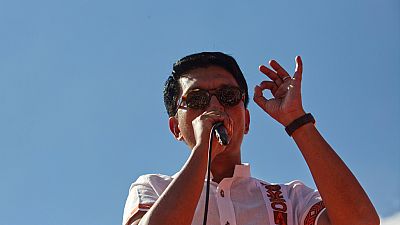

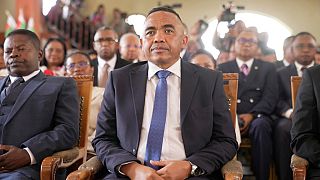
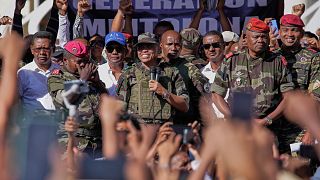
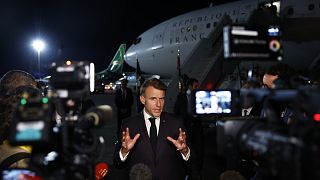



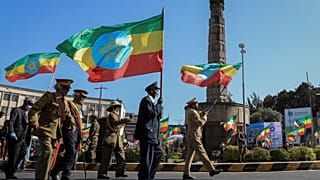
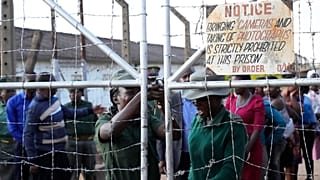
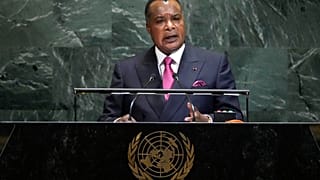
01:12
Guinea-Bissau’s main opposition urges dialogue with military rulers
01:04
US lifts sanctions on senior Malian officials
01:00
Presidential campaign starts in Congo-Brazzaville
00:50
President of Madagascar visits his French counterpart in Paris
00:18
Ramadan celebrations in Libya tempered by soaring prices and shortage of fuel
00:50
IMF approves $91 million in funding for Niger following programme review